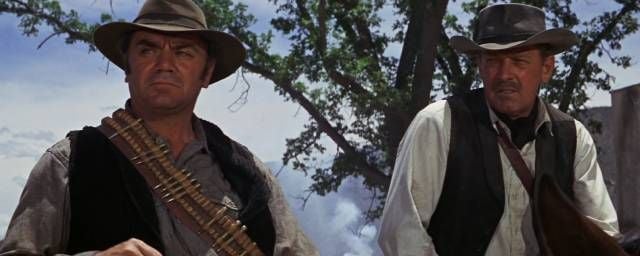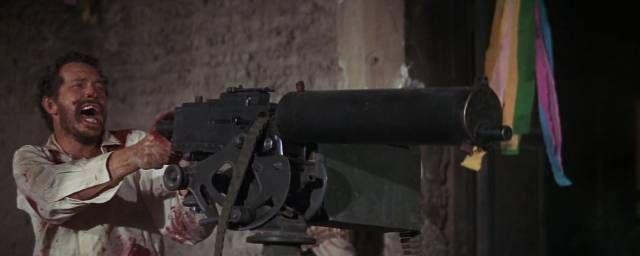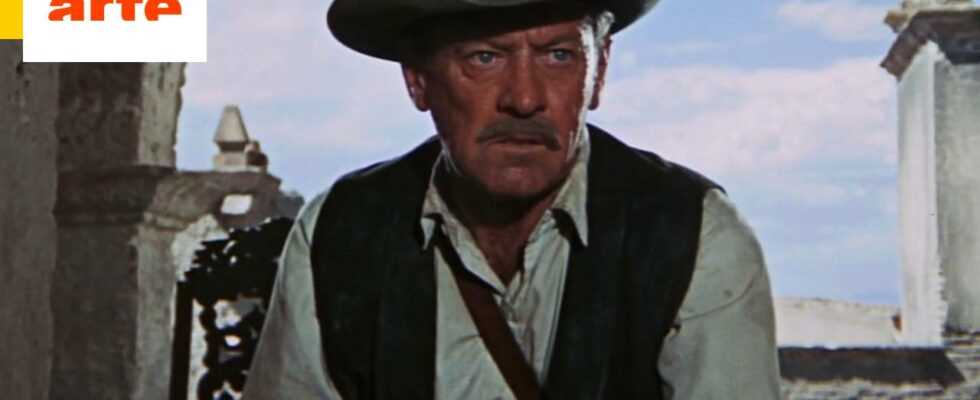Back in the past, when Sam Peckinpah fired 22 people on the set of “The Wild Horde”, his masterpiece, released in 1969.
The Wild Horde is 75 days of filming which will become 81, a budget of 3.4 million which will become 5 or 6 and a Sam Peckinpah in top form but also… on his nerves!
Indeed, in this early spring of 1968 in Mexico, the director of Major Dundee is obnoxious on the set with his technical team, vociferating when things are not as he visualizes them, to the point that certain people have sometimes intervened to lower the atmosphere.
On the set, if the agreement is in good shape between Peckinpah and his producer Phil Feldman, the latter does not hesitate to declare, about his director:
“Sam had no sympathy for a guy with a family to support but screwing up at his job, that wasn’t his problem and he couldn’t tolerate it…He had no understanding even for a mistake that would eventually be corrected. He was very hot-tempered and if someone made a mistake on set or elsewhere, he was ready to jump on them, and that’s a shame.”
Warner Bros./Seven Arts Ben Johnson, Warren Oates, William Holden and Ernest Borgnine
This character trait is also confirmed by the person concerned, since by his own admission to Michael Bliss in the book Doing it Right: The Best Criticism on Sam Peckinpah’s The Wild BunchPeckinpah says:
I believe Mr. Feldman and I fired 22 people from The Wild Bunch. They weren’t all studio members, of course, some were independents, some were union members from Mexico City. But we worked very hard, and more than 8 hours a day.
According to legend, comedian William Holden threatened to quit the set if Peckinpah didn’t address his collaborators better. By mimicry, this same Holden is unconsciously inspired by the way Sam Peckinpah leads his team to interpret Pike Bishop, his character. According to Lou Lombardo, film editor, Holden “led his band like Sam led his team!” (quoted in The Wild Bunch: The American Classic That Changed Westerns Forever by Bill Mesce, Jr.).
Ernest Borgnine (Dutch) for his part has very good memories of the shoot, even if he too threatened – almost physically – the director so that he was allowed to evacuate the dust obstructing his throat and preventing him from breathing. .

Warner Bros./Seven Arts
Ernest Borgnine and William Holden
Whatever the shooting conditions of this western, Peckinpah directed his best film, the one that will remain if we were to keep only one. This film symbolizes many things for the history of cinema. It symbolically marks the end of the era of the studios in Hollywood because Peckinpah had the “director’s cut” on the assembly, even if this right was undermined by Warner.
Indeed, Feldman did not object at the time to the studio cutting ten minutes of The Wild Horde when it was already in theaters, simply to reduce its length.
The Wild Horde also puts the final nail in the coffin of classic Hollywood-era westerns by portraying outlaws not as Robin Hoods but as shameless killers, work that Peckinpah had begun with the superb fire in the sierra.

Warner Bros./Seven Arts
Warren Oates (Lyle) strafs the Mexican army
Finally, it pushes the limits of on-screen violence, following on from Arthur Penn’s Bonnie and Clyde two years earlier. Adding a debauchery of hemoglobin to which the American public was not prepared, the film will cause a scandal when it is released because of this. The Italians were already having a field day at that time, but the public had never seen this in an American film.
Genius is therefore sometimes accompanied by an element of madness. We’ll leave the final word to actor LQ Jones (TC in the film), who worked on 5 Peckinpah-directed feature films:
“Sam went crazy on The Wild Bunch, but I’ve seen him so much worse. Like on the set of Pat Garrett and Billy The Kid, where he was drunk from morning till night and robbed me and Harry Dean Stanton with a loaded gun. With The Savage Horde, he was in love with the script and really determined to do a good job. He only went crazy if things didn’t go his way.“. (Comments from the magazine Flashback).
